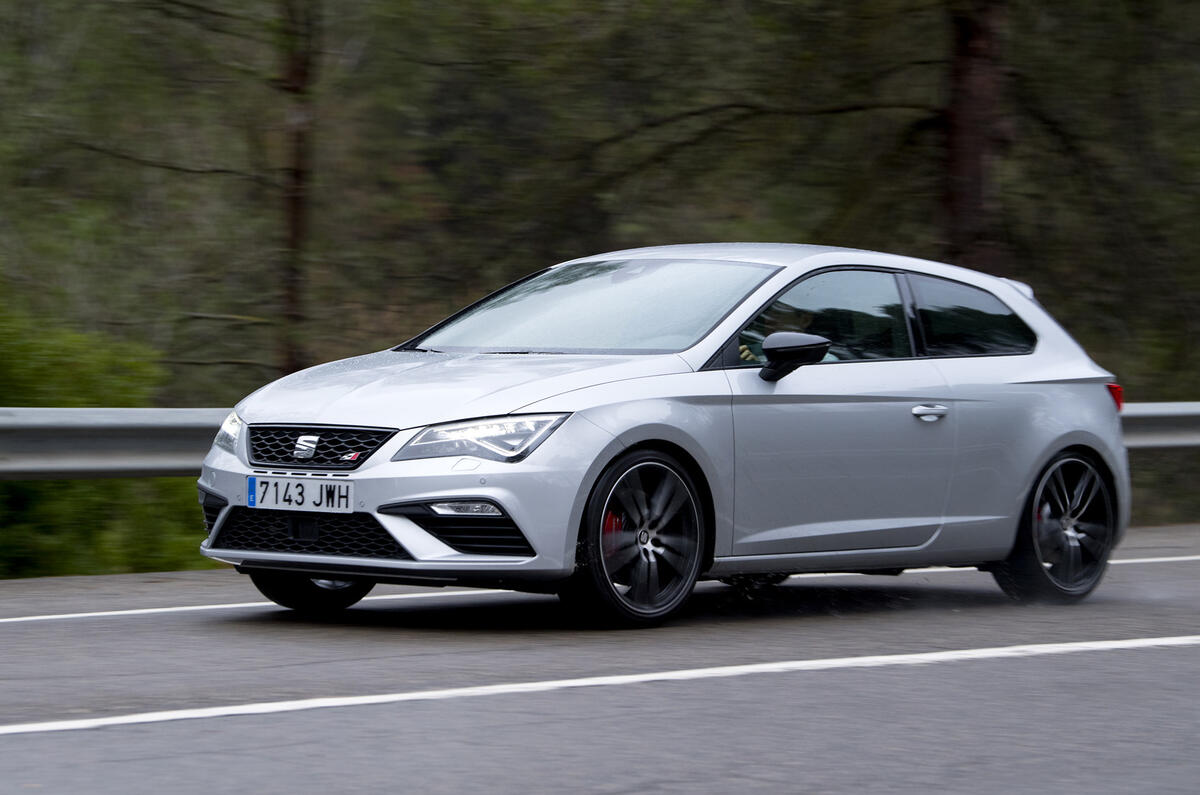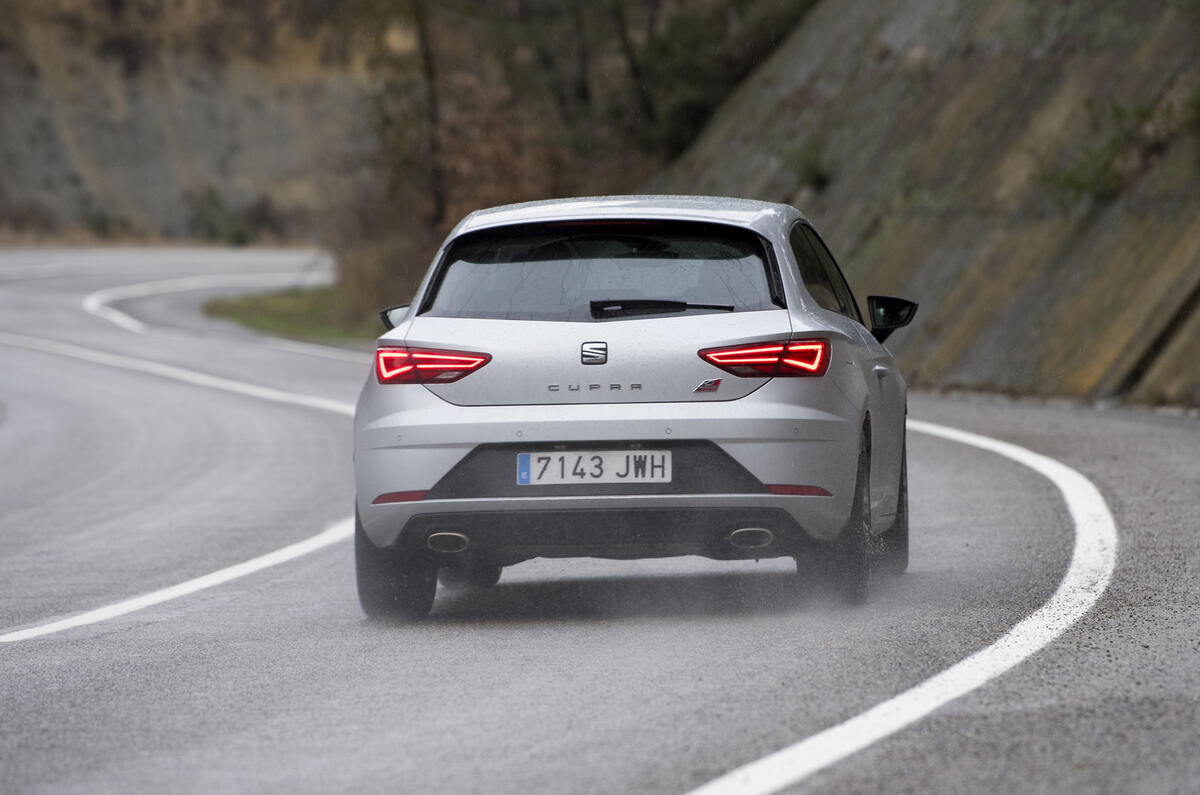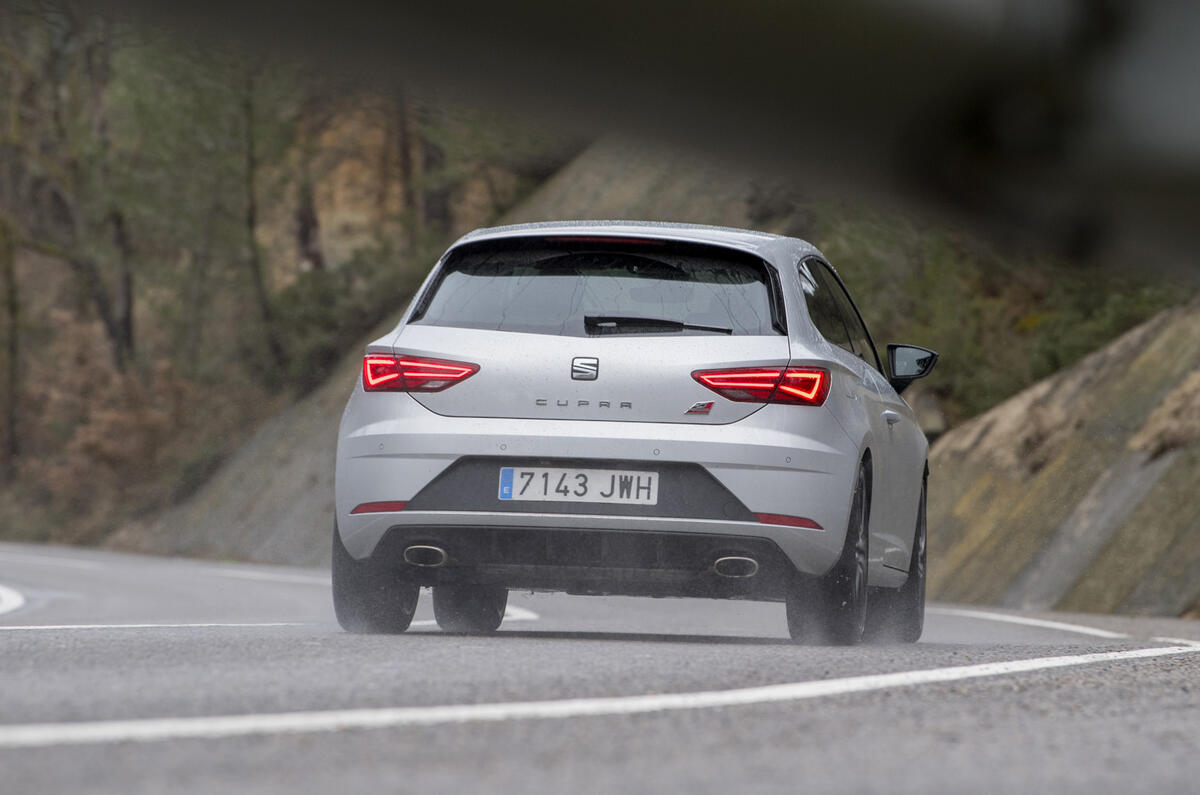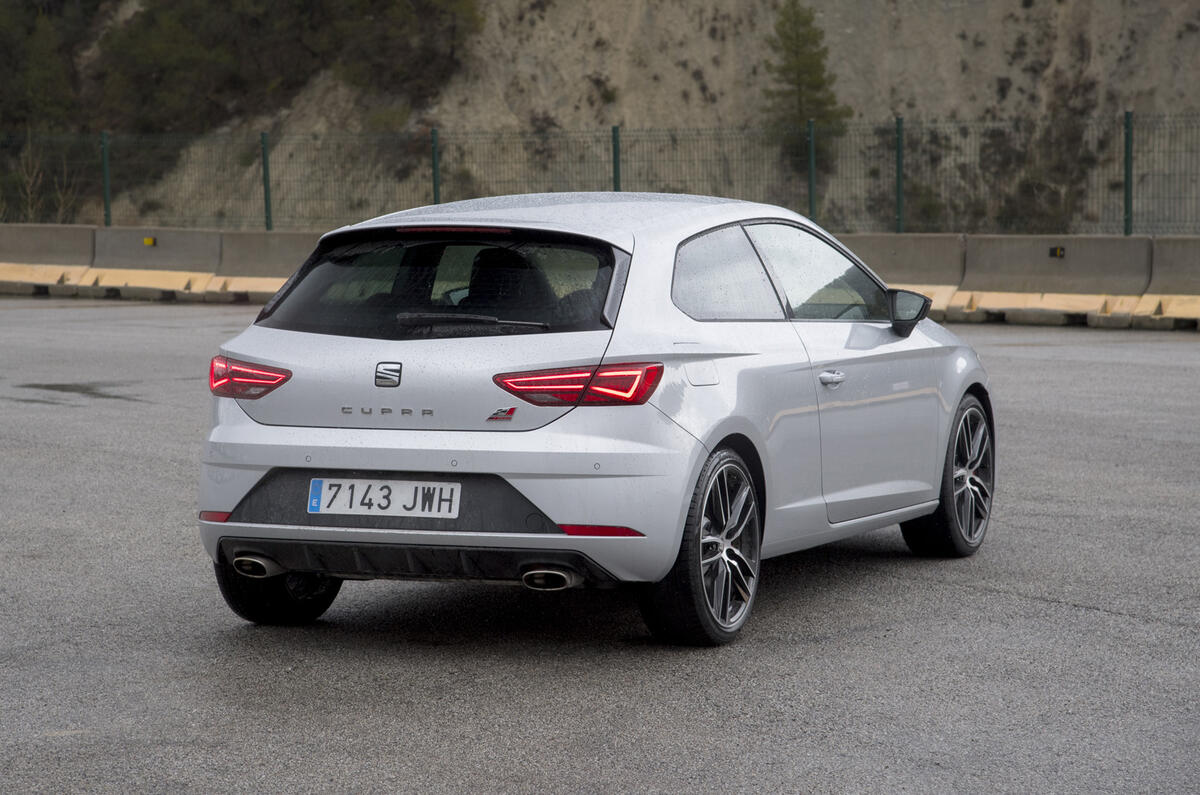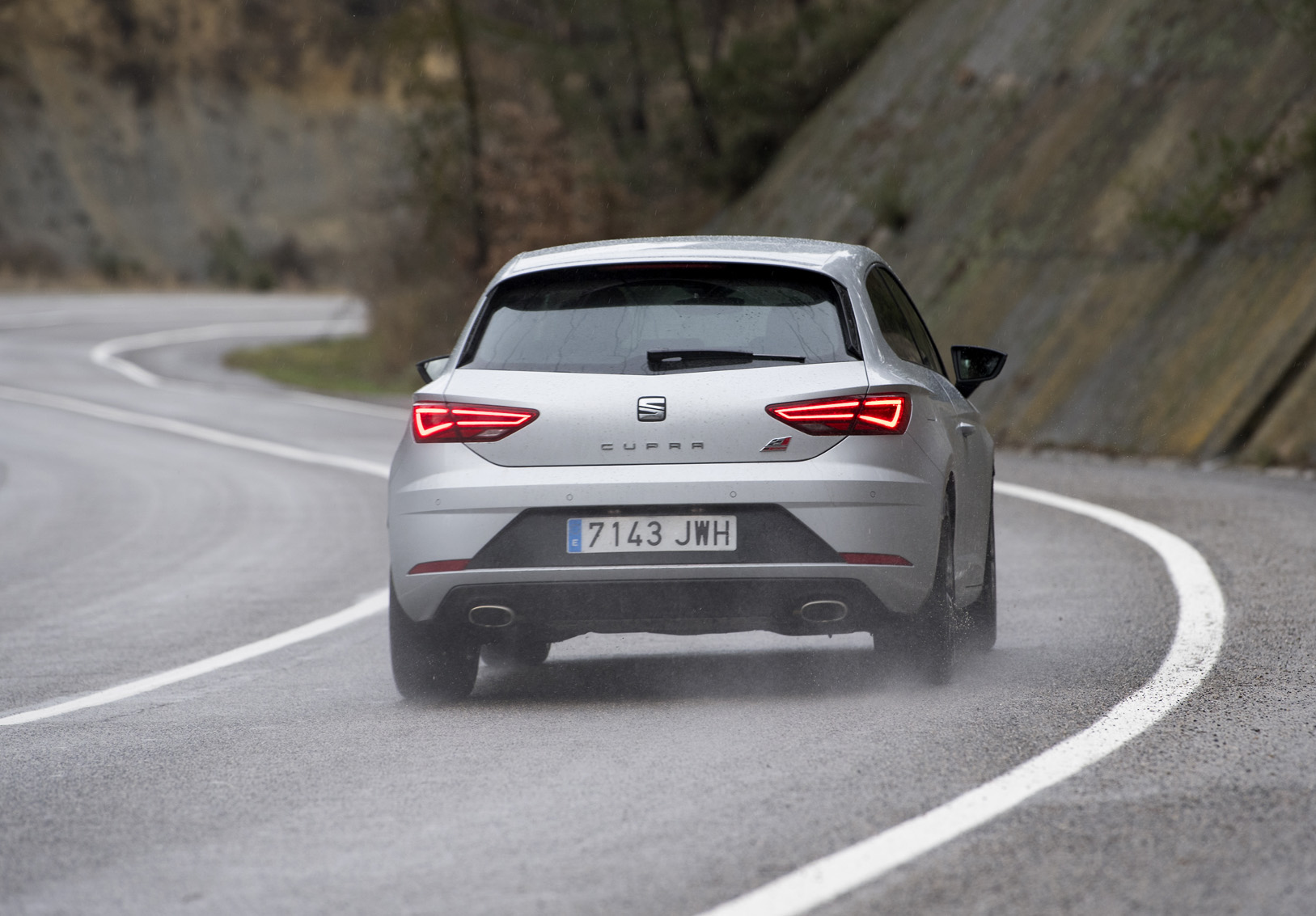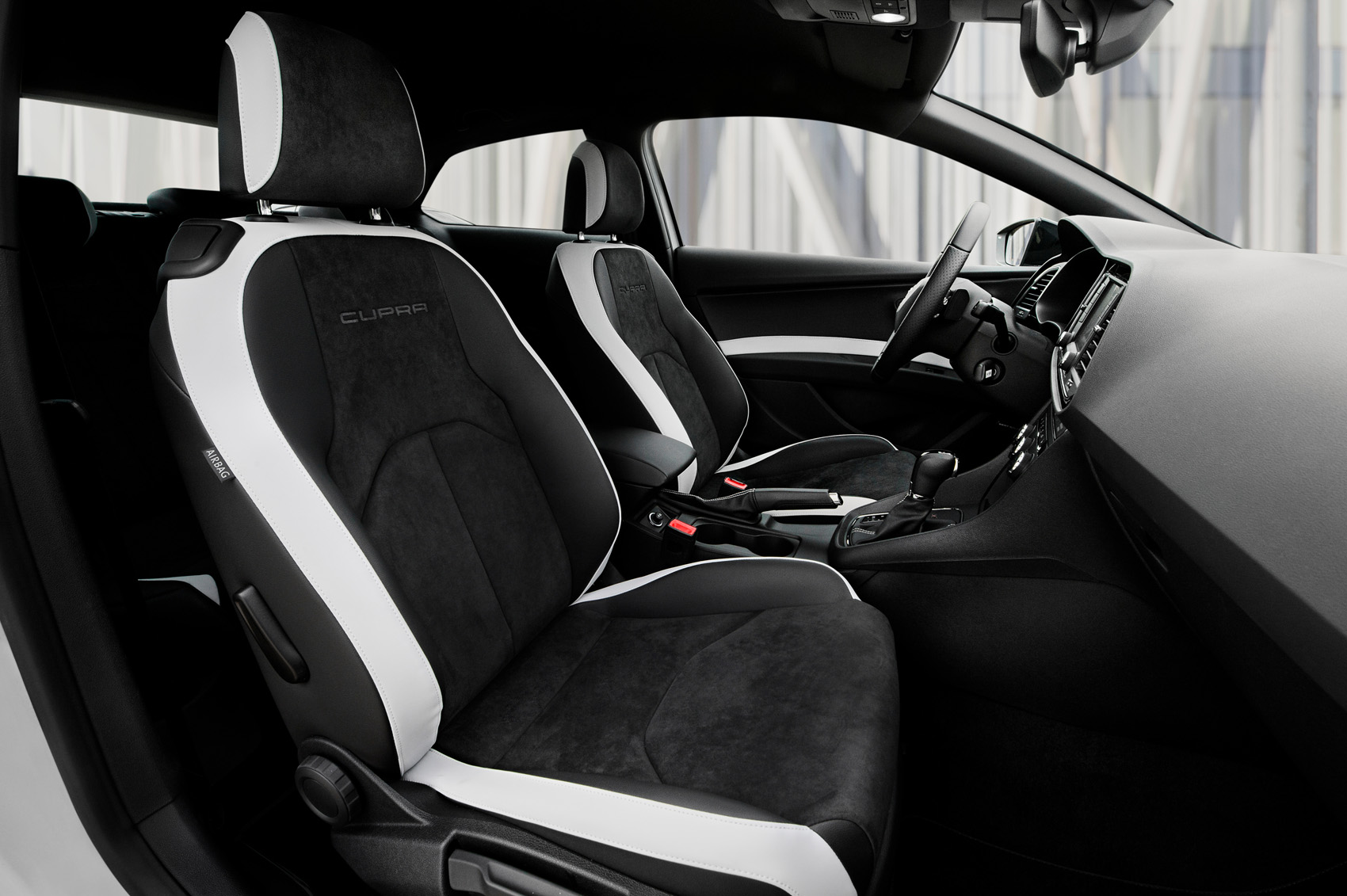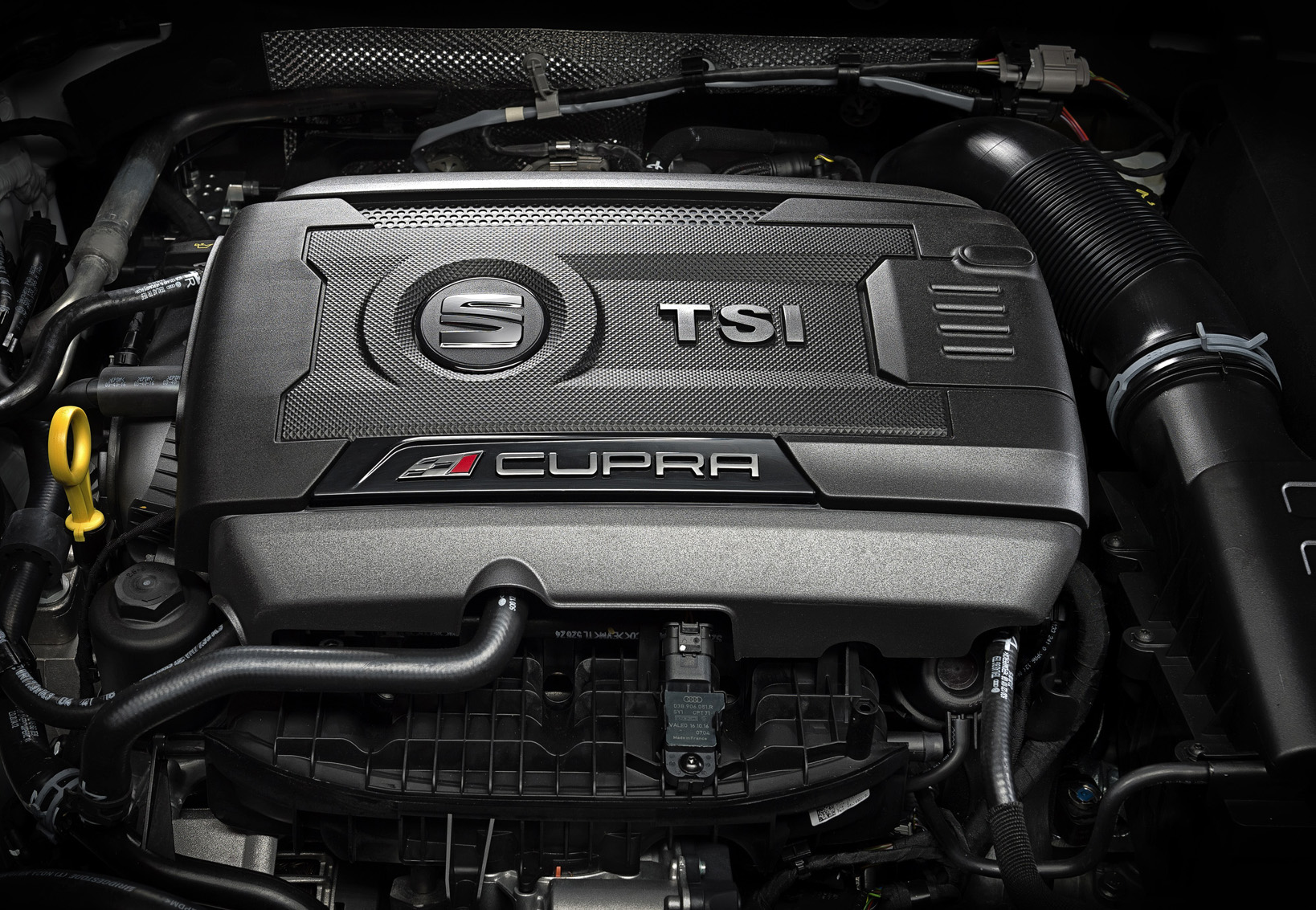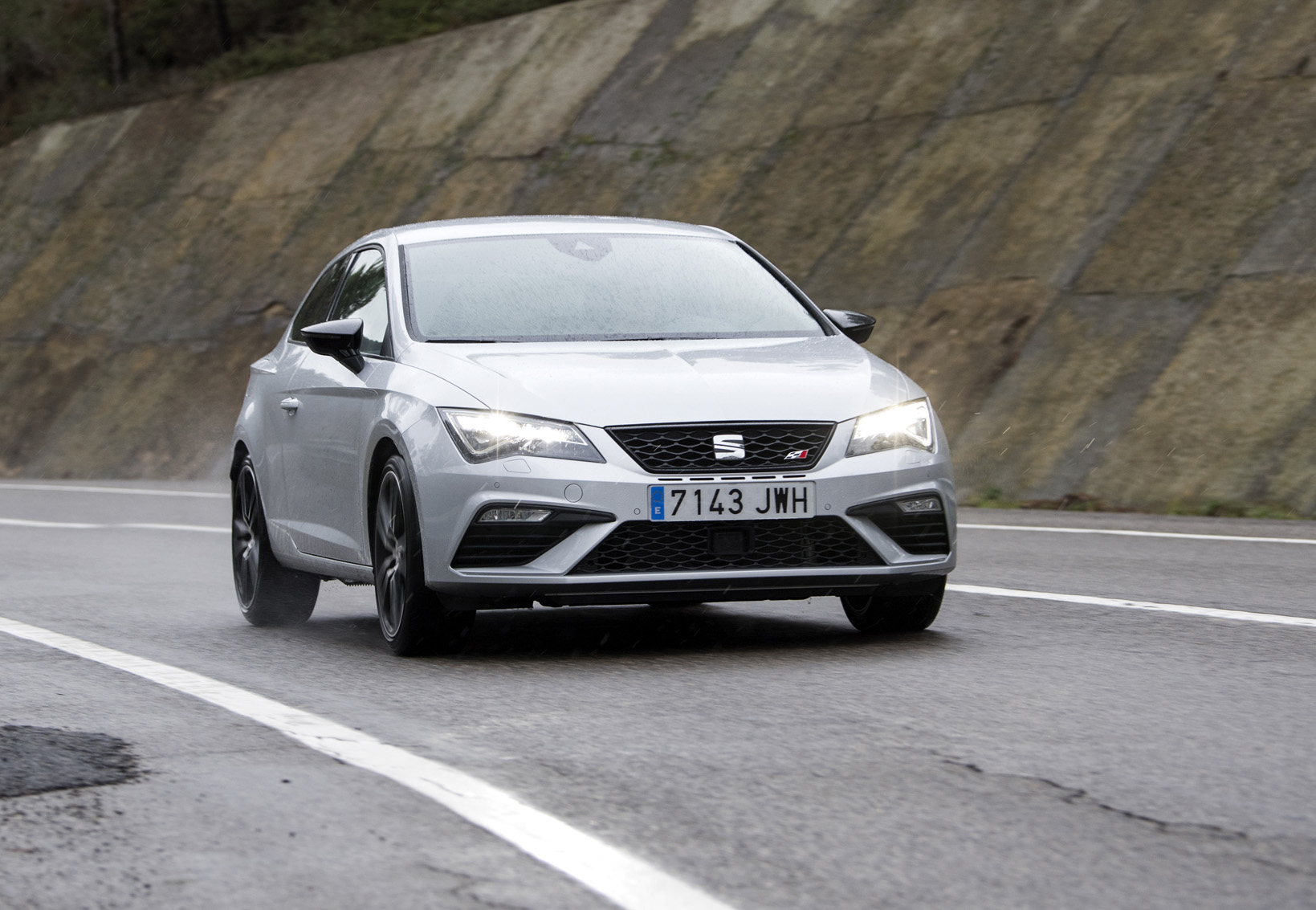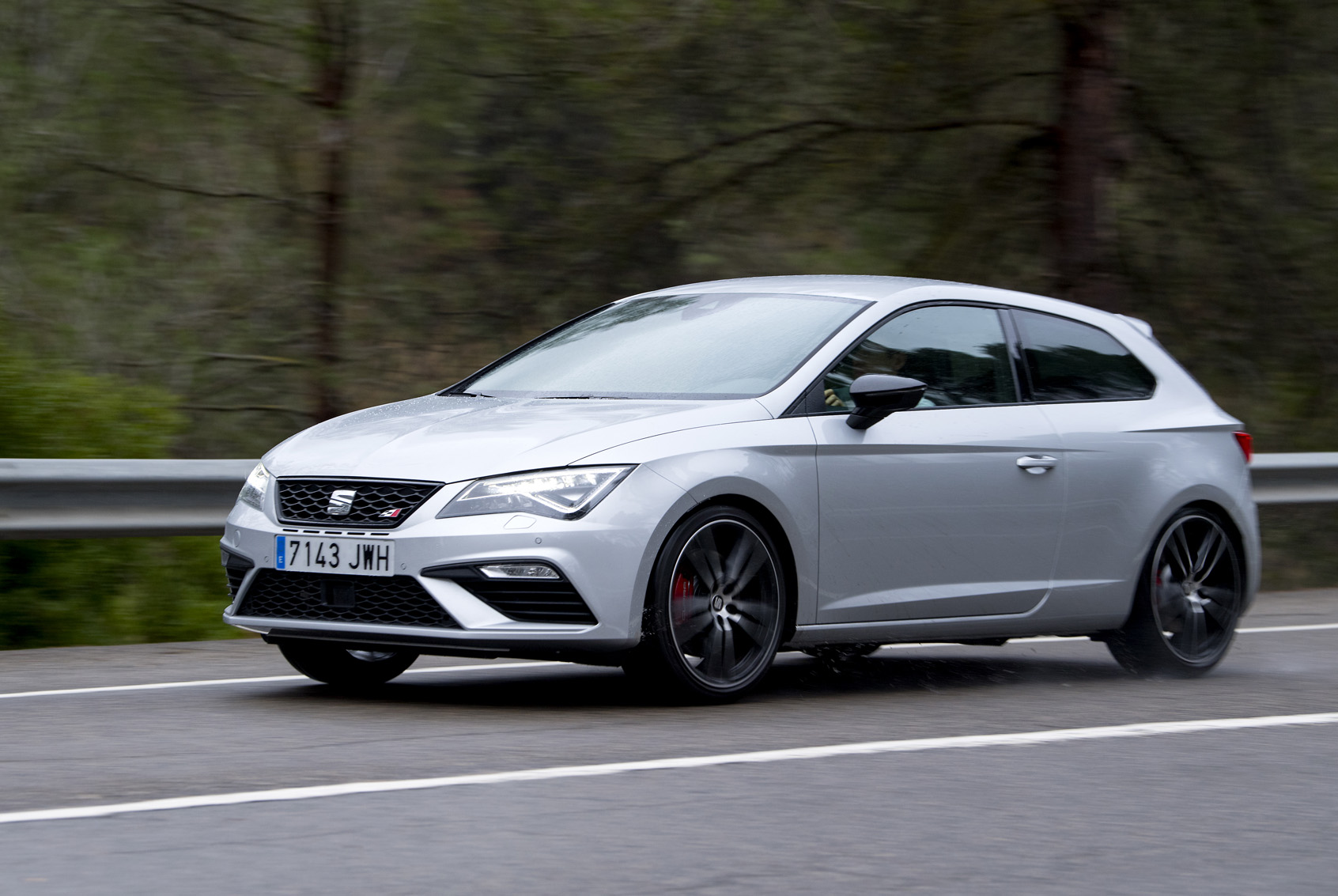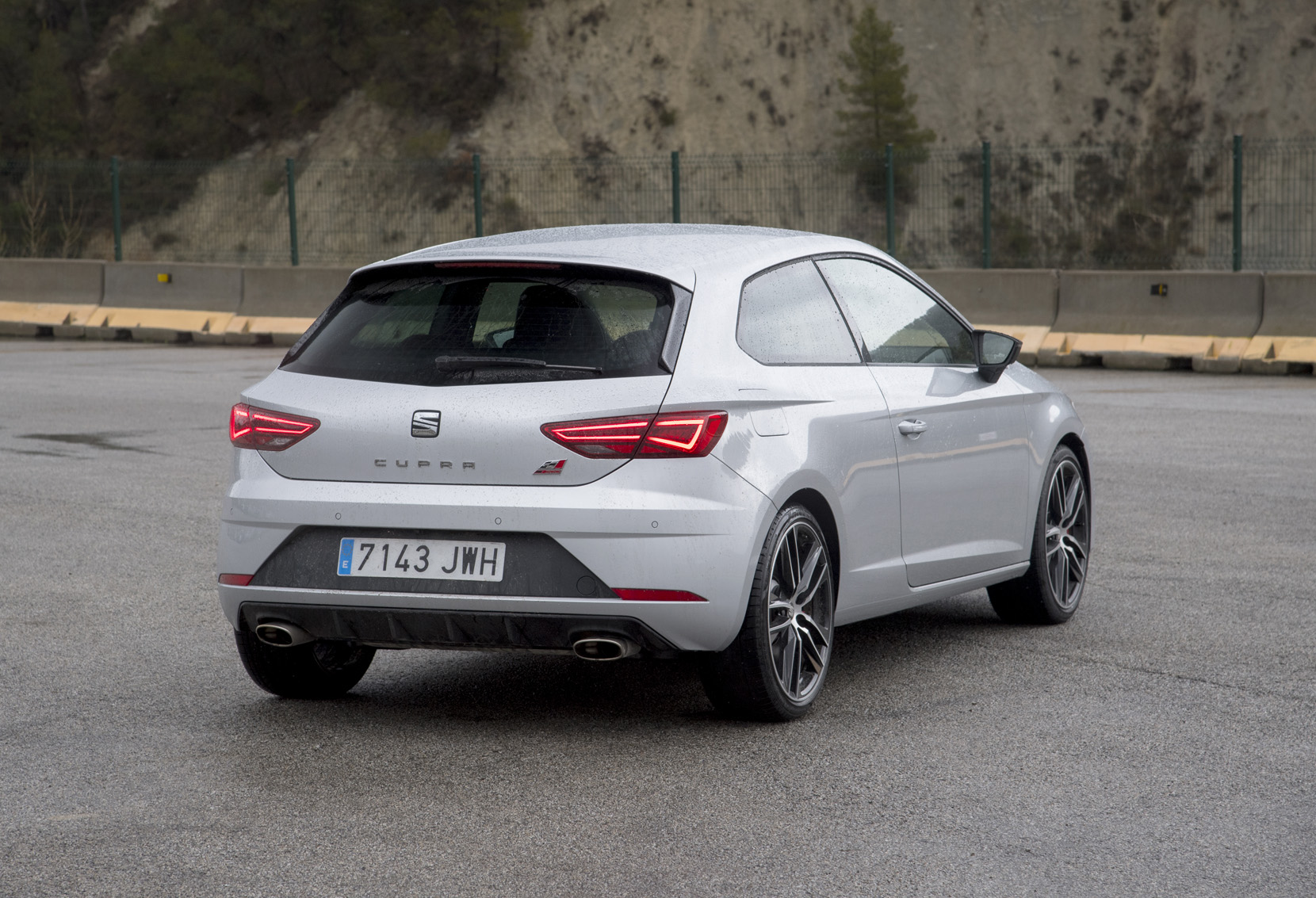Ever since there has been a Seat Leon, there has been a warm version, and this, the new Leon Cupra, is the warmest series-production variant of the Leon yet.
The Leon was the first C-segment hatchback the company produced under the stewardship of Volkswagen, which mooted the idea that the Spanish manufacturer would become the group’s youthful, dynamic brand.
It hasn’t always quite managed that (cough, Altea XL, Toledo, cough), but in the Cupra versions of the Leon, there’s little denying that Seat has provided admirably fiery flagships.
Seat started identifying its performance models with the Cupra badge in 1999. Hot Cupra versions of the original Leon and the second-gen Ibiza were introduced that year, the former with 177bhp.
The latest is available with either three doors – badged 'SC' – or five doors or in estate form and is only available in full-fat 290 form.
That puts the new Cupra very near the top of the front-wheel-drive hatchback pile, an area patrolled by the not inconsiderable muscle of the Ford Focus ST, Renault Mégane RS 265 and, most shove-worthy of all, the Vauxhall Astra VXR.
Today’s new Cupra enters the hot hatch fray with even more grunt than the last Cupra R (it had 261bhp), leaving room for a future Cupra R to go even bigger. But it’d need to have more power than the 306bhp Holland-only Leon Cupra 310 special edition of 2008 in order to be the hottest Leon ever.


